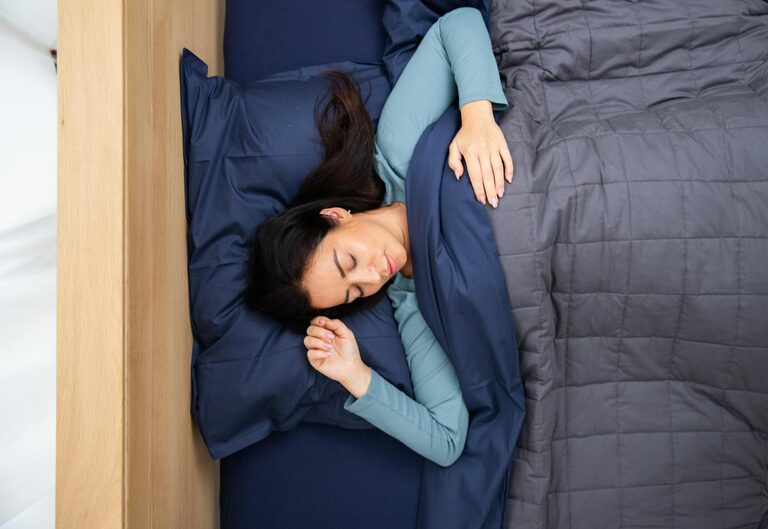
Getting a good night’s sleep starts with having the right pillow. A pillow that suits your sleeping style and personal comfort needs can make all the difference in how well you rest. But with so many options on the market, it’s easy to feel overwhelmed. This guide will help you understand the factors to consider when choosing a pillow for better sleep.
Why the Right Pillow Matters
Your pillow supports your head, neck, and shoulders while you sleep, helping keep your spine properly aligned. Using the wrong pillow can lead to discomfort, stiffness, or even headaches. On the other hand, the right pillow helps reduce pressure points and keeps you comfortable through the night, improving overall sleep quality.
Factors to Consider When Choosing a Pillow
1. Your Sleep Position
How you sleep influences the type of pillow you need:
– Back sleepers: Often benefit from a medium-loft pillow that supports the natural curve of the neck without pushing the head too far forward.
– Side sleepers: Usually need a firmer, thicker pillow to fill the space between the neck and mattress, keeping the spine aligned.
– Stomach sleepers: Tend to require a thinner, softer pillow to avoid straining the neck.
2. Pillow Fill Material
The pillow’s filling affects its feel, support, and durability:
– Memory foam: Offers good support by contouring to your head and neck, ideal for those needing extra alignment.
– Down or feather: Soft and lightweight; provides a luxurious feel but may not support heavier heads well.
– Polyester: Affordable and hypoallergenic, but may flatten quickly.
– Latex: Naturally resistant to dust mites and mold, and offers firm, bouncy support.
– Buckwheat: Filled with hulls that conform individually, offering firm support and good airflow.
3. Pillow Loft (Height)
The loft of a pillow must match your body’s shape and sleeping style:
– Low loft (around 3 inches) is better for stomach sleepers.
– Medium loft (4-5 inches) suits back sleepers.
– High loft (5-7 inches) is preferable for side sleepers.
Choosing the right loft helps maintain proper spinal alignment.
4. Firmness Level
Pillows come in different firmness levels, from soft to extra firm. Soft pillows provide more cushioning and may be comforting for those who like a plush feel. Firmer pillows give stronger support for the neck and shoulders.
5. Allergies
If you’re sensitive to allergens, opt for pillows labeled hypoallergenic or made from natural materials resistant to dust mites and mold, like latex or certain synthetic fibers.
6. Maintenance and Care
Some pillows can be machine washed, while others require spot cleaning or professional care. Consider how much effort you want to put into maintaining your pillow’s freshness.
Tips for Testing a Pillow Before Buying
– Try it in your usual sleeping position. Spend a few minutes resting your head and neck on the pillow.
– Check for comfort and support. Your neck should feel supported without bending unnaturally.
– Take note of temperature regulation. Some pillows trap heat more than others.
– Consider allergies and sensitivity. Smell the pillow to detect any strong chemical odors.
If buying online, look for brands with good return policies so you can try the pillow risk-free at home.
How Often Should You Replace Your Pillow?
Most experts recommend replacing pillows every 1-2 years. Over time, pillows lose support and accumulate allergens even with regular cleaning. Signs it’s time for a new pillow include:
– Lumpiness or flat spots
– Neck or shoulder pain after sleeping
– Allergic reactions or congestion
– Unpleasant odors
Bonus: Additional Sleep Comfort Tips
– Use a pillowcase made from breathable fabric like cotton or bamboo.
– Adjust your pillow choice seasonally if needed—cooler fills in summer, warmer and fluffier in winter.
– Consider adding extra pillows for additional lumbar or leg support for specific needs.
Conclusion
Choosing the right pillow is a key step toward better sleep and overall well-being. By considering your sleeping position, preferred materials, firmness, and maintenance needs, you can find a pillow that offers comfort and proper support through the night. Remember to check for signs of wear regularly and replace your pillow as needed for optimal rest.
With the right pillow, you’ll wake up feeling refreshed and ready for the day ahead! Happy sleeping!




